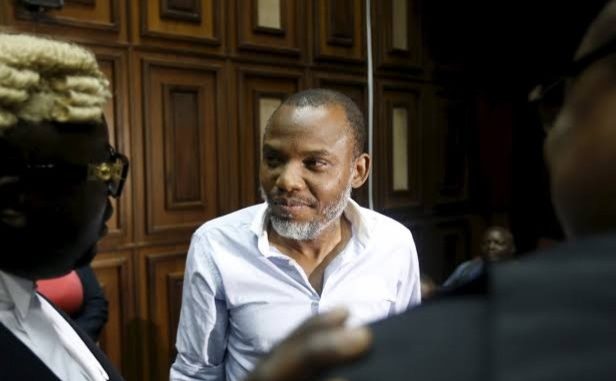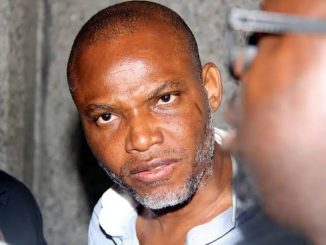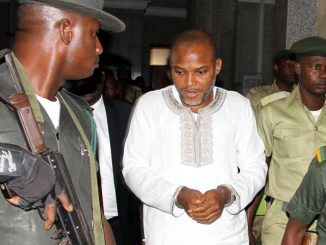
Tuesday, March 19, 2024 — A Nigerian federal court on Tuesday refused bail for separatist leader Nnamdi Kanu and instead ordered an expedited trial on seven counts of terrorism against him.
Kanu, a British citizen and head of the banned Indigenous People of Biafra (IPOB), fled Nigeria in 2017 while on bail, only to be apprehended in Kenya in 2021 and subsequently charged with terrorism upon his return to Nigeria.
Despite Kanu’s denial of the charges, the Supreme Court’s reversal of a prior ruling paved the way for his trial.
The court presided over by Judge Murtala Nyako, deferred the trial’s commencement to April 17th.
ALSO READ: Ghana opens talks with bondholders to restructure $13 billion debt
Additionally, Nyako rejected Kanu’s plea to be transferred from the custody of the Department of State Services (DSS) to a conventional prison, citing health concerns related to his congenital heart disease.
Kanu’s defence team contends that his extradition from Kenya renders a fair trial in Nigeria improbable, an assertion Kenya has neither confirmed nor refuted.
Kanu’s IPOB advocates for the secession of southeastern Nigeria, predominantly inhabited by the Igbo ethnic group, a movement labelled as terrorism by Nigerian authorities.
This echoes historical tensions, as illustrated by the Biafran secession attempt in 1967, which ignited a three-year civil war claiming over a million lives.



